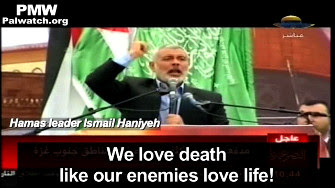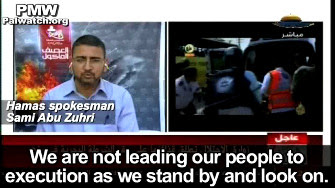ROME — Mohammed bin Abdulrahman Al Thani, deputy prime minister and foreign minister of Qatar, listed the Middle East’s main problems at the MED 2018 conference in Rome last Thursday. Naturally, at the top of the list he put Saudi Arabia’s ongoing blockade of his family’s little kingdom. Next were the bloody wars in Yemen and Syria, the chaos in Libya and the political unrest in Lebanon. That was it.
Missing was another regional conflict in which the Qataris have been deeply involved: the
Palestinian issue, and more specifically the question of Gaza’s future, in which the Emirate is now investing
$15 million a month, in cash.
Al Thani wasn’t the only one to downgrade the Palestinian issue at the conference – Ahmed Aboul Gheit, secretary-general of the Arab League, also began his talk by listing possible reasons why the region is still broken, saying it could have been the Iran-Iraq war, Iraq’s 1990 occupation of Kuwait, 9/11 or the American invasion of Iraq. According to Gheit, who served as foreign minister in Hosni Mubarak’s regime in Egypt until 2011, it was most probably “the so-called Arab Spring that caused the destruction of the Arab world.”
At first, he didn’t mention Israel-Palestine, though later on he said that along with
Iran’s “encroachment” on the Arab states, the Palestinian issue was still one of the two problems haunting the region and that “without a settlement to [the Palestinian issue] the turmoil [in the region] will continue.”
But listening to other representatives of Arab League member states at the conference, who either ignored or downplayed the Palestinian issue, Gheit’s words sounded like lip-service.
Instead, on the stage and behind the scenes, there seemed much more appetite for normalization with Israel.
Oman’s Foreign Minister said it quite clearly when he called on the Arab world to “come to terms with the reality that Israel is a fact of life in the region,” and therefore should have its share of “rights as well as obligations.”
The degree to which Israel and the Palestinians were no longer a central issue was evident even in the appearance of Iran’s Foreign Minister, Mohammad Javad Zarif, who focused his criticism on the Saudis and the United States, and refrained from mentioning Israel in his talk. Even Zarif seemed to realize that this wasn’t a venue for Israel-bashing.
A veteran editor of an Arab news organization explained that he simply no longer had the strength to deal with the issue. “It’s fatigue, fatigue. It’s been going on since I was born, it’s coming out of my ears. There’s no progress on the issue, there’s nothing we can do about it, [Israel is] a fait accompli, it’s realpolitik. It’s the reality. We have bigger fish to fry.”
“The only reason now not to speak publicly with Israelis,” said one Lebanese pro-democracy activist at the conference, “is social media. It’s bullshit, but a selfie with an Israeli on Instagram can still get you in trouble. There will be a pile-on with people saying nasty things. But everyone knows that is just another stage toward normalization.”
The conscientious organizers of the annual conference, which is hosted jointly by Italy’s foreign ministry, the Italian Institute for International Political Studies (ISPI), and public broadcaster RAI, devoted a couple of sessions to the Palestinian issue, but even they had an air of quiet desperation to them.
The onstage interview with the Palestinian Authority’s foreign minister, Riyad Maliki, was a long and barely-concealed rebuke of the international community and the Arab nations for forsaking the Palestinians, which could be summed up with his warning that the Palestinian issue “will stay there knocking on the door of each and every one of you.”
Maliki promised that the Arab states would not “normalize” with Israel as long as there was no end to the occupation of the Palestinian Territories. But at MED 2018 there was about as much chance of hearing about potential cooperation with Israel on energy and desalination, as of the enduring conflict.
One senior Middle Eastern diplomat listening to Maliki commented that “the basic fact is that for better or worse, the world isn’t bothering Israel anymore about the Palestinians. It’s a total change of paradigm.” This fact that was borne out by the interview with the senior Israeli representative, Knesset Speaker Yuli Edelstein; it contained just one question tangentially connected to the Palestinian issue, regarding his expectations of the Trump peace plan (pretty low). The rest of the talk revolved around how Israeli technology can help the region, and the threat of Iran – what else?
At a small side-session devoted to the
future of Gaza, speakers seemed more focused on the need for a rapprochement between Hamas and Fatah as a way of solving Gaza’s multiple crises, than on pressuring Israel on the matter.
One leading European expert on the Middle East, who has spent decades writing about Israel and the Palestinians, echoed the widespread underlying feeling. “It’s hard for me now to convince editors and think-tank directors of the need to write papers on Israel and Palestine. No one can see any point, and quite frankly, I’m not sure I can either.”
“It looks like Netanyahu’s dream come true,” observed a former Israeli diplomat at the conference. “He always tried to get the Palestinians off the agenda. But careful what you wish for. The Palestinians aren’t going away, and this issue will come back to haunt us with a vengeance.”

































